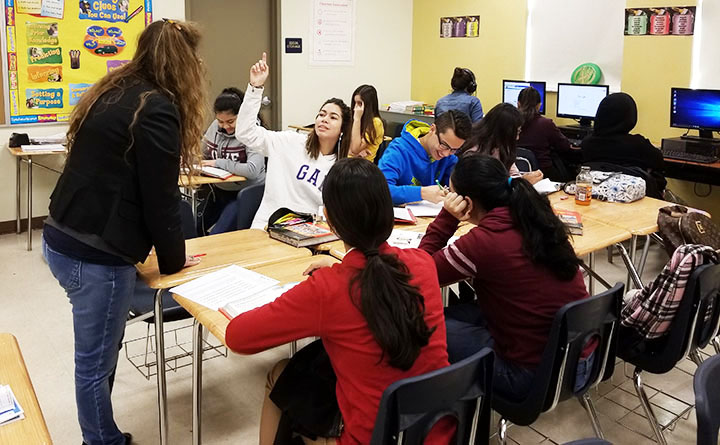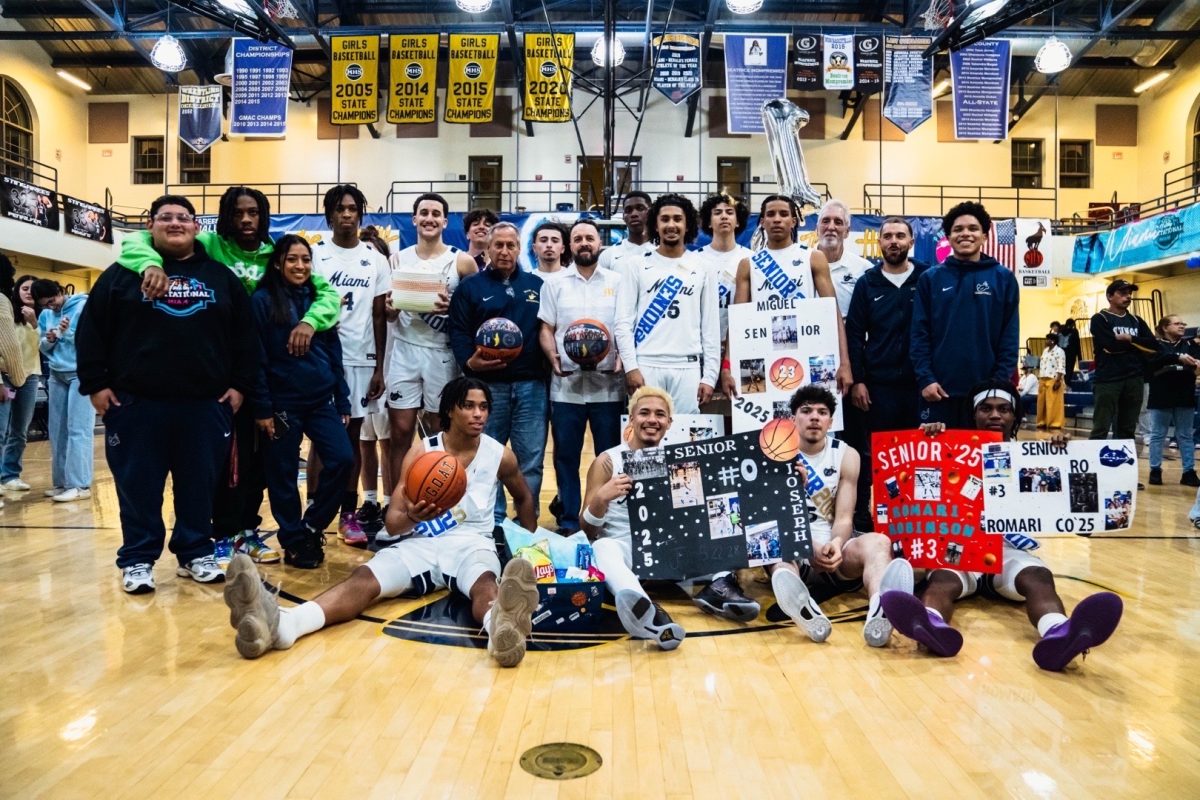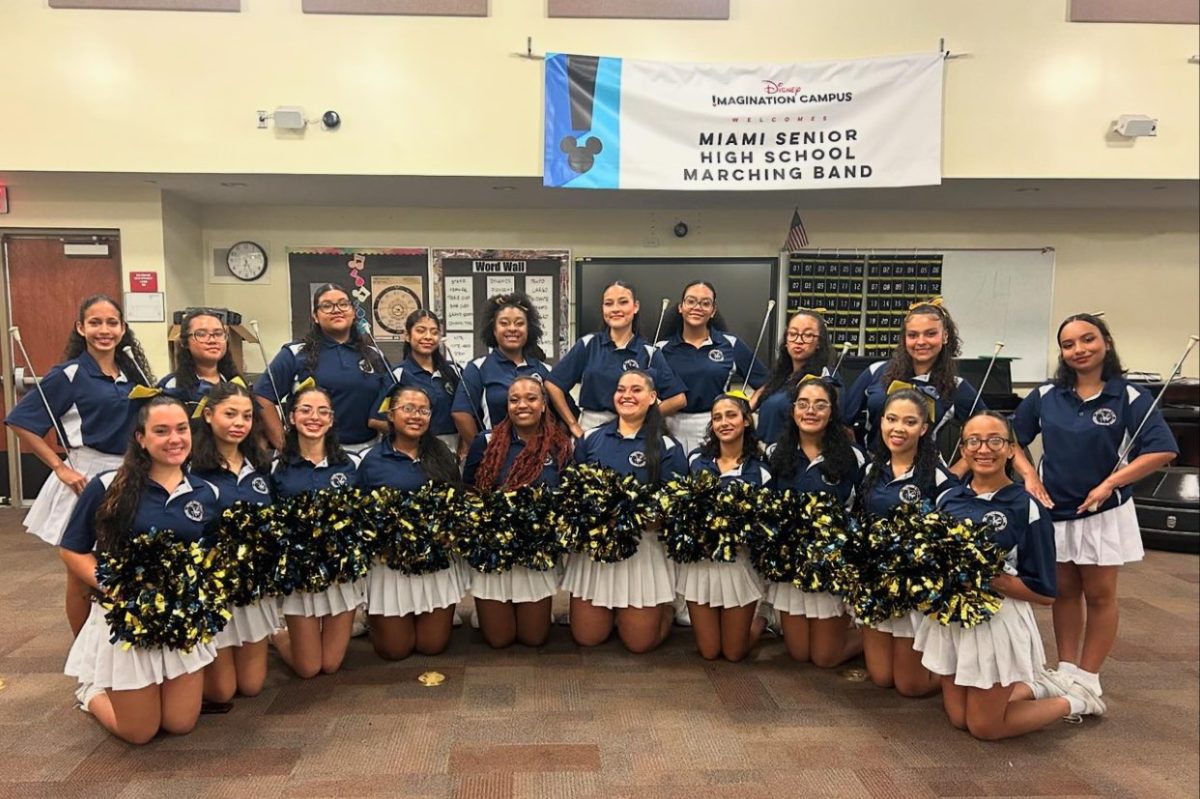ESOL Students
January 16, 2018
Students who speak English sometimes feel frustrated when they don’t understand something in their classes. Can you imagine how frustrating it is for ESOL students whose greater barrier is the English language? “I feel very confused when classmates or teachers speak to me in English because I don’t understand what they are telling or explaining to me,” said ESOL 1 student Roxana Perez.
Being an ESOL student is not be easy. ESOL 1 student Mathiu Bescosme feels that the hardest thing is that he can’t socialize with people he wants to talk to. “The difficulties of being an ESOL student is that I have to put twice as much effort to understand the classes and in some occasions, I cannot defend myself in the way I would like,” said senior Blanca Prats, an ESOL 1 student.
Being in a school where almost everybody speaks English might be an obstacle for students whose native language is not English, but that doesn’t mean ESOL students don’t like our school or that our school doesn’t help them. “I like the school because it is where we learn basic things that will help us in our life. School is where we make our first steps, and then it prepares us to run toward our future,” said Blanca Prats.
Many of us ask ourselves if ESOL students have disadvantages when they come here? “Besides the obvious social, financial, and emotional disadvantages encountered by all immigrants in our community, ESOL students also have one major academic hurdle, which is their English language and cultural deficiencies,” said ESOL administrator Ms. Couzo.
Surprisingly, many ESOL students don’t feel different at Miami High. ESOL 1 student Lorelys Gonzalez said, “I don’t feel like people treat me differently; they just talk to me in Spanish when they find out I don’t speak English.”
On the other hand, ESOL 1 students Sarai Gonzalez and Alanis Rumincsik feel that people treat them like they are not intelligent enough or that they are different because they don’t speak English. “It all depends on the person. Some people don’t treat me differently and try to help me speak English, but others make fun of me when I say things incorrectly,” said Blanca Prats.
Some classes might be especially hard for ESOL students. ESOL 1 Student Eva Martinez said, “English class is hard for me because even though I try, I don’t understand what the teacher is saying.”
On the other hand, ESOL 1 student Roxana Perez said, “Classes are easy for me because teachers help me a lot when I don’t understand something. They are very patient and are always willing to help.”
ESOL administrator Ms. Couzo said, “At Miami High, we are very proud of the ample help we provide our ESOL students. First, ESOL teachers are a great group of experienced professionals, who not only aim to develop students’ language and cognitive abilities to help them succeed academically, but they are also very aware of their students’ affective and social needs.”
Ms. Couzo, ESOL administrator said, “During their language acquisition process (may take up to 7 years), ESOL students receive accommodations approved by Federal and States governments to help them succeed in school. These are in the form of the ESOL strategies and certain accommodations during testing. Despite all these efforts to help, many of the ESOL students still fall behind because of the academic deficiencies they bring in their own language development. They lack background knowledge, and on to top it all, the high level of academic language and critical thinking skills required to succeed in standardized tests needed for graduation.”
We all miss something. It can be the snow in the winter, a family that lives far from us, or our native country. Many ESOL students miss their home country. “I really miss my country and what I miss the most is the freedom and nature,” said Mathiu Bescosme who comes from Cuba. “I really miss the food of my country Cuba; it is very delicious,” said Lorelys Gonzales.






